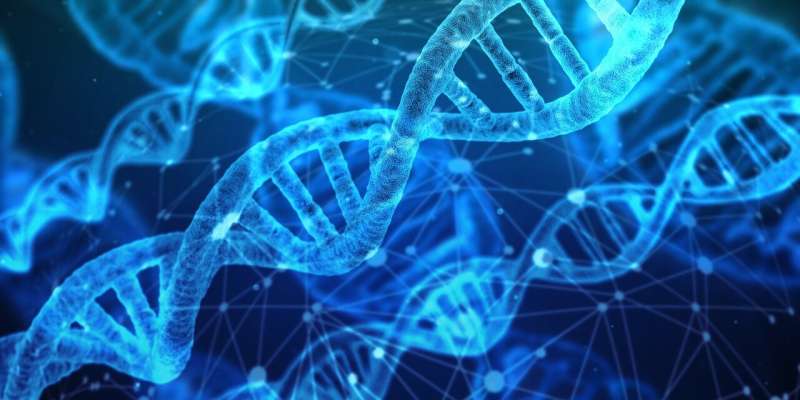Completing DNA synthesis

The final stage of DNA replication—"termination"—occurs when two DNA copy machines advance upon each other and unwind the final stretch of DNA. This process occurs about 60,000 times per human cell cycle and is crucial to prevent mutations.
Termination is susceptible to replication errors in bacteria and viruses, but not in vertebrates, suggesting that specific pathways mitigate replication errors during termination in human cells.
James Dewar, Ph.D., and colleagues have identified a role for the enzyme topoisomerase II in reducing replication errors during termination. The investigators used Xenopus (frog) egg extracts to show that topoisomerase II removes tangles from replicated DNA in order to prevent copy machines from stalling.
The authors also found that copy machines stall when drugs that inhibit topoisomerase II are used. Similar chemotherapeutic drugs target topoisomerase II, suggesting that termination errors may be frequently induced by cancer therapy. This work was published in the Oct. 8 issue of Cell Reports.
More information: Darren R. Heintzman et al. Topoisomerase II Is Crucial for Fork Convergence during Vertebrate Replication Termination, Cell Reports (2019). DOI: 10.1016/j.celrep.2019.08.097
Journal information: Cell Reports
Provided by Vanderbilt University



















